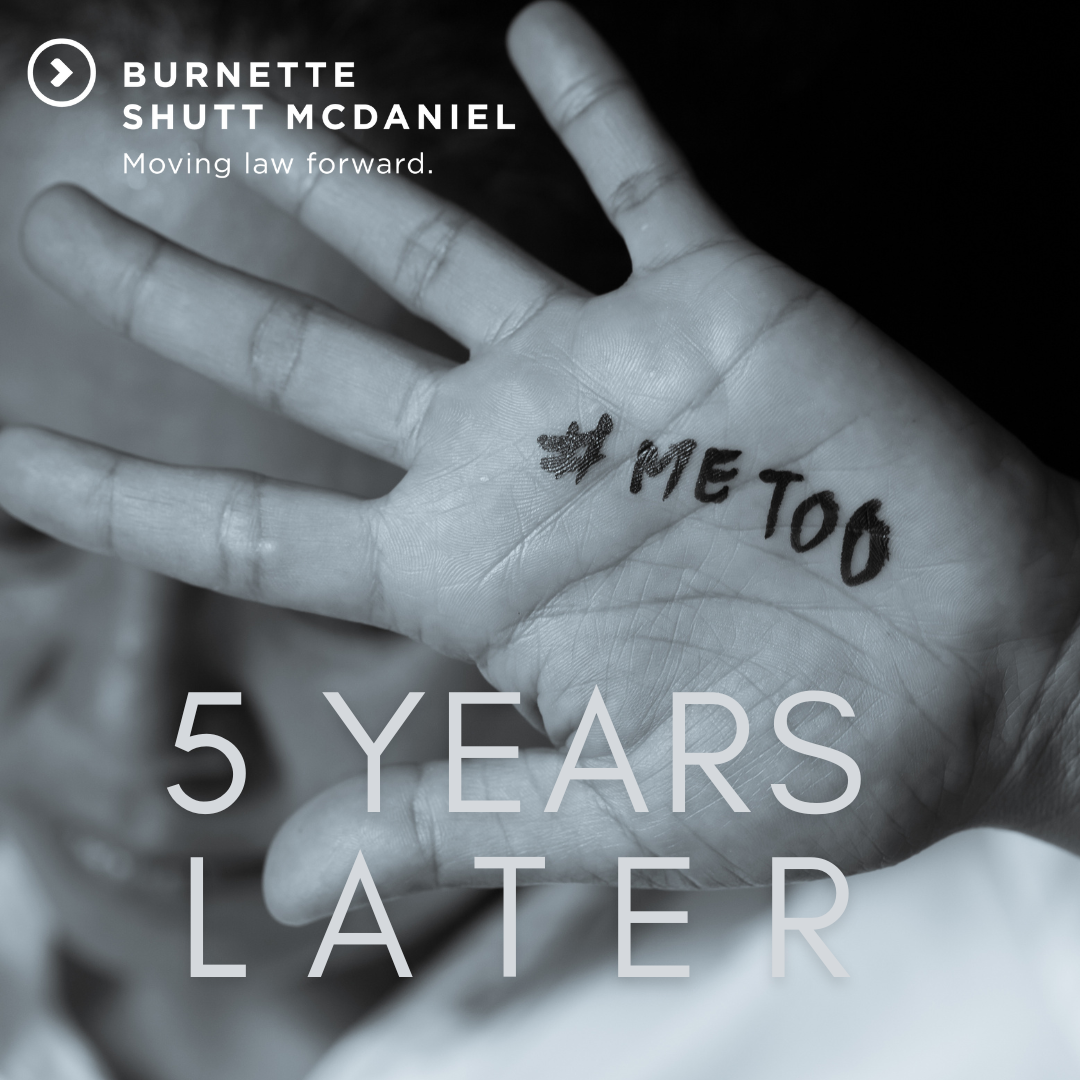The legislative impacts of #MeToo five years later

Sex harassment has long impacted the workplace. Too often, though, these problems were ignored.
However, in October 2017, following the New York Times release of the Harvey Weinstein story, these issues took the spotlight in a movement too widespread to ignore.
The #MeToo movement resulted in victims coming forward about sexual harassment. It gave voices to many who had not previously felt heard and increased awareness of inappropriate conduct. Victims told their stories, knowing they were not alone.
It is now five years later. While sexual harassment unfortunately hasn’t ended, there have been legislative changes to how sexual harassment and abuse claims are handled.
The Tax Cuts and Jobs Act of 2017
Among the #MeToo stories came complaints that nondisclosure agreements silenced victims of sexual harassment and allowed harassment of others to continue.
President Trump signed The Tax Cuts and Jobs Act of 2017.[1] Its changes included denying tax deductions for settlements subject to nondisclosure agreements in connection with sexual harassment or sexual abuse. This has helped to discourage non disparagement agreements in connection with workplace sexual harassment.
Ending Forced Arbitration
On March 3, 2022, President Biden signed into law a bill amending the Federal Arbitration Act.[2] Pre-dispute arbitration agreements are now barred for claims alleging sexual assault or sexual harassment.
Speak Out Act
The #MeToo movement spurred several states, including California, New Jersey, New York, Oregon, and Virginia, to ban the use of nondisclosure agreements to cover up sexual harassment. Federal law, beneficial to plaintiffs, then followed.
On December 7, 2022, President Biden signed the Speak Out Act into law.[3] The law renders nondisclosure and non-disparagement agreements related to allegations of sexual assault and/or sexual harassment and that are entered “before the dispute arises” or pre-lawsuit unenforceable. Those agreements made after a lawsuit is filed would still be subject to the Tax Act discussed above.
Five years later, the #MeToo movement is still very much alive, and the impacts on the legal field are still occurring. The employment attorneys at Burnette Shutt & McDaniel continue to stay up to date with changes in legislation and case law.
We’re passionate about helping employees who wish pursue claims for sexual harassment, sexual assault and battery. We also provide workplace trainings on how to prevent workplace harassment and how to properly handle complaints of harassment and subsequent investigations.
Information or interaction on this page should not be construed as establishing a client-attorney relationship or as legal advice. For advice about your specific situation, please consult one of our attorneys.
[1] https://www.govinfo.gov/content/pkg/BILLS-115hr1enr/pdf/BILLS-115hr1enr.pdf
[2] https://www.congress.gov/117/bills/hr4445/BILLS-117hr4445pcs.pdf
[3] https://www.congress.gov/bill/117th-congress/senate-bill/4524/actions

